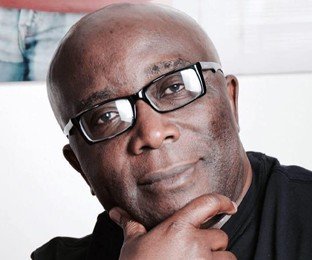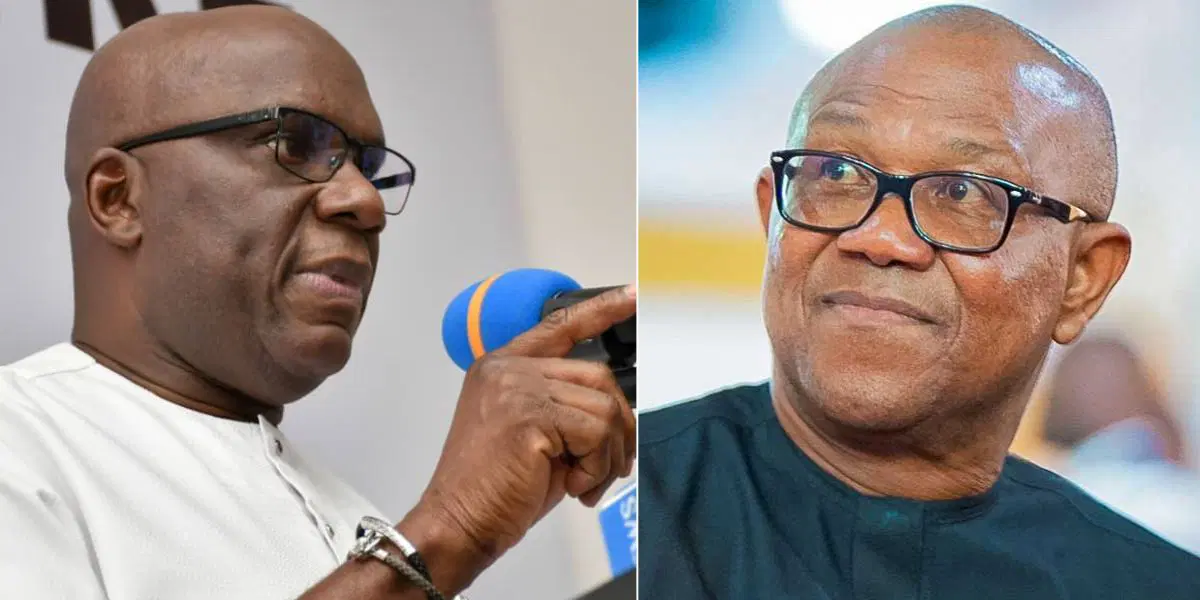This opinion essay by Chidi Amuta paints a stark portrait of a nation losing confidence in its future. It chronicles the rising despair among ordinary citizens, the collapse of public trust in governance, the erosion of state capacity, and the widening gulf between political elites and the people they claim to serve. Readers are invited to confront the troubling questions raised here about Nigeria’s survival, its leadership, and the fraying social contract binding the nation together.
Recent trends in our national life have forced Nigerians to abandon the virtue of incurable optimism and unconditional hope in the nation as a perpetual reality. It used to be that in all circumstances, Nigerians would never believe that the nation is under any terminal threat.
But in recent times, the percentage of Nigerians awaiting the imminent collapse of the nation has now far outnumbered the minority still hoping that the country will survive its present travails. It seems that we are fast approaching that slippery joint where it is hard to find any believers in the survival and meaning of Nigeria.
Instead, throughout the length and breadth of this vast land, a new and unhappy consensus has emerged: Nigeria is dying. The usual refrain of “God is in control” or “This, too, shall pass” in difficult times has given way to silent indignation and resignation.
A silent poor woman who used to be a trader in trivia at the roadside has nothing left to sell and no money to buy what she needs. She raises her open palms skywards in speechless supplication as tears stream down her cheeks. She has become for me an embodiment of the tragedy of the times in which we now live.
The Rise of a Hopeless Public Mood
By a curious irony with a tinge of tragicomedy, the Tinubu government is trumpeting “hope” as its most important offering. The regime has adopted what it calls “the Renewed Hope Agenda” as its mantra and unique caption of the mandate of this presidency.
In a note of tragic irony bordering on self-deprecation and mockery, each appearance of the President at a public forum (including gatherings of judges), a new regime anthem titled “On Your Mandate, We Shall Stand” has become informally mandatory. It sometimes precedes the old resurrected National Anthem. It sounds more like a comic choir rented to laugh at a nation in the throes of death.
Suddenly, we seem to have arrived at this unhappy consensus: Nigeria is dying. This existential admission of the imminent death of our nation is the unfolding legacy of our endangered democracy. Our elections lack credibility or popular following. In recent elections in Ondo, Edo and Anambra states, the consistent average voter turnout has been below 35 percent. People register to vote but find nothing worth voting for.
“Suddenly, we seem to have arrived at this unhappy consensus: Nigeria is dying.”
They are taking stock of previous years of this ritual of voting and find nothing cheery. They just stay home instead of being counted as part of the statistics of deceit and betrayal. As it turns out, the greater percentage of this miserable recent turnout are even transactional votes.
On the election days, partisan buyers and sellers of votes mount point-of-sale checkpoints at most polling booths. Your voter’s card entitles you to a miserable cash handout: ₦2,000–₦5,000. It could be higher depending on the cash power of the contestants.
A Political System Consumed by Itself
The votes that show up at INEC’s voter machines represent the balance sheet of total sales and purchases made at all the polling stations at the election. Other aspects of our democracy are equally in disarray.
The party system is shattered. The ruling party has become a power monopoly intent on swallowing other parties. The major opposition party, the PDP, has a resident destabilizer with a single mandate: to kill the party and ensure that it is its carcass that walks into the next general election.
The rest of the opposition platform has been frightened into disarray by sundry agents of the state and party in power. The various alliances and rumours of alliances are merely scarecrows manipulated by agents of the ruling party.
In itself, the ruling party is saddled with hand-picked officials who make no distinction between the party as an institution of democracy and the government in power, or indeed between the political party and the state.
A democracy in which there is no distinction between the party in power and the party in government leads to a degrading usurpation of the state by the political elite of the ruling party. A factional elite cannot govern a state without wholly appropriating the machinery of the state to its individual and collective advantage. State capture is complete when the leading lights of the ruling hegemonic party become also the leading lights of the nation.
A Government Frozen in Routine While Citizens Sink Deeper
The likes of Wike, Umahi and Akpabio become the faces of the nation. These constantly nattering nabobs of current power negativity have been elevated to the status of arbiters of values for the nation.
They brandish their wealth and false identities to frighten ordinary citizens. In itself, the business of governance under Mr. Tinubu has become a humdrum ritual of boring reflexes. Great national happenings are marked by high-school-grade routine statements from the pinnacle of power.
No actions are initiated. Once a presidential pronouncement is signed off, the leadership moves on to await the next tragic checkpoint. The life of the nation progresses from one tragedy as preparation for the next. No action plan follows the train of tragedies and failures. Just move on in the hope that tomorrow will be a better day, without bad news and disheartening occurrences.
But bad news has become our new normal. Whatever happens to the nation, one sector never sleeps. Politics of anyhow and anything remains in business. Politicians keep decamping from other parties or no parties to the ruling party in droves. No need to state why people are decamping. The parties they are coming from or the one they are migrating to stand for nothing. No ideology. No core beliefs. Nothing.
A Nation Where Hardship Is a Daily Reality
And in any case, there are no consequences for changing parties like filthy underpants. So the beat goes on: breakfast in Labour Party, lunch in PDP, dinner in APC. Even those in the ruling party either as cabinet members or legislators do nothing in particular to justify their large charges on the public treasury.
In return for doing practically nothing, a bunch of jobless politicians earn entitlement to costly SUVs, free housing, large entourages of domestic and official minions and vast troves of cash in all currencies as kickbacks and contractors’ gift packs.
“A state that cannot guarantee basic security of life and limbs of citizens has, of course, failed to protect and guarantee its territorial integrity.”
There is delight in chasing off road users with limitless motorcades of official nonentities escorted by authorized state hooligans in uniform. While politicians luxuriate in plenty, the daily life of our citizenry is mired in want and penury. Recent policy measures have further eroded the living standards of the ordinary Nigerian. An endless litany of taxes, levies and tolls has rendered every item of living cost unaffordable.
Prices of everything ranging from gasoline to cooking gas, school fees to transport fares, basic medication to hospital bills and building materials have shot through the roof. Even if these were elements of economic management, nothing has been put in place to indicate that the state has a compassionate aspect.
Instead, there is an unhidden hand of cruelty in new policies. A few days ago, the government expressed an intention to impose a 15 percent surcharge on the already astronomical prices of gasoline.
Only the fear of mass protests as in Kenya, Tanzania and Algeria frightened the government into pulling back on this tax on an existing tax regime on gasoline.
When Security Breaks Down, the State Ceases to Exist
While the public keeps expecting the government of the day to alleviate mass suffering, the very essence of our national existence is eroded by the day. The most elementary obligation of the state, the protection of life and property, is everywhere in peril. People are now dying daily on an industrial scale. Terrorists, jihadists, bandits, gangsters and casual criminals compete with each other as to how many they kill, abduct, dispossess or cause to disappear.
Those paid by the state to protect the rest of us look on in indifference or manifest the most embarrassing incompetence in the discharge of their duties. At best, non-performing or delinquent security officials are fired in droves with no explanations to the public. The other day, the DSS sacked over 100 officers with no public explanation. These hounds have been unleashed into the amorphous public space to heighten an insecurity that has defied decades of tepid government effort.
These are officers who are trained in weapon-handling and other skills that they will easily deploy to increase our insecurity. A state that cannot guarantee basic security of life and limbs of citizens has, of course, failed to protect and guarantee its territorial integrity.
Nigerians no longer know where Nigeria stops, and bandit territory begins. Every other forest, savannah stretch and unoccupied building in Nigeria is now an ungoverned space literally owned and inhabited by non-state actors.
The possession of arms and weapons of war used to be the exclusive preserve of the state. Guns and uniforms used to frighten ordinary people off government. Not anymore. Now, the most sophisticated weapons of war are in the hands of terrorists, bandits and sundry criminals.
The Collapse of Institutions and the Rise of Fear
The most garish uniforms are now worn by non-state organized squads. Jihadists in rags now outgun our best-kitted military units. Literally, the Nigerian state has been outgunned by the forces of those that do not wish us well, and the government of the day looks on in sheepish incompetence.
In some states, elected governors stage “peace” meetings with bandit leaders and their armed cohorts while the police and military provide “security” in full view of television cameras.
So, whose nation is this anyway? Only recently, a symbolic drama was staged on the streets of Abuja. In a motor-park-like encounter, FCT Minister Nyesom Wike was engaged by a mid-level Naval officer in an encounter over landed property.
Instructively, the military high command sided unanimously with the Naval officer. In this symbolic scuffle between the military and political wings of the ruling elite, the military asserted itself stiffly as a contender in the game of political supremacy.
In an atmosphere where a rumoured coup is being investigated, wise politicians have since sided with the military in this land-grab encounter. Wike, a noisy political jackal with scant common sense, has been stripped naked and left sulking alone. The justice system is not left out of the hopelessness.
Even in cases where the law is challenged to defend and protect the rights of individuals or track and punish violators of the law, the Nigerian judiciary has been consistently wanting.
When Justice Is for Sale, Society Cannot Stand
Judges deliver judgments to fit their bills. Material appeasement of the highest echelons of the judiciary in the form of cash, automobiles, free houses and unaccounted vacations has blurred the boundaries between justice and injustice. The rights of citizens now have a price tag. The agencies of public accountability only exist to hound those whom the state does not like. The police arrest and detain those it adjudges state adversaries while authorized criminals roam and wax freely.
Public protest against misrule and injustice is rewarded with tear gas and bullets and prolonged incarceration without charges or trial. A nation in which the Accountant General can steal most of the funds in the treasury without setting off any audit alarm is, at best, a rogue’s piggy bank guarded by squads of pickpockets.
“The rights of citizens now have a price tag.”
Our general perception in the world outside our borders has tumbled to an all-time low. From being the voice of African strength, we have degenerated to a sorry state.
Our foreign-policy exertions have sunk to the diplomacy of the beggarly. Imagine the recent threat by Donald Trump in the days of Murtala Muhammed and Obasanjo, either as military leader or elected president. Against the foregoing backdrop, citizen loyalty and confidence in the state has dropped to near zero. The common man in the streets who used to be proud of his nation in spite of its faults has withdrawn to his or her tent.
People are more concerned about surviving to the next day than bother about the niceties of national survival and community. At best, people are now cursing and abusing Nigeria. Many now wish they were never born here. Our passport and identity have become badges of shame abroad.
Comparisons With the Past and the Hard Questions Before Us
Most significantly, a nation that used to believe that God will ultimately rescue the nation has lost that last anchor of hope in divine provenance and providence. Citizens have begun to doubt the efficacy of divine solution that will save the nation as it is today. While a general disillusionment has eroded hope and confidence in the nation, the government of the day cannot find the courage to compare itself to any of its predecessors.
But governments do not exist in isolation. They derive their credibility from fitting themselves into a historical spectrum provided by their predecessors. It is not for us to pronounce judgment on the Tinubu government in terms of its record of performance. From the return of democracy in 1999 to the present, citizens can now pick and choose when they last had a good meal, affordable life or peace of mind from insecurity.
We miss Obasanjo’s banking reforms and liberalization of the stock market. We miss his initiative in opening up the telecommunications market. We miss the introduction of debit and credit cards and cashless platforms in the economy. We miss the Jonathan era before he found himself in the midst of Boko Haram.
Looking back now, who will not prefer the Naira at ₦175 to the dollar and multiple access to credit for consumption and business? Or a bag of cement at a little over ₦2,000? Even Buhari’s ₦400–₦500 to the dollar cannot be compared to today’s hellish ₦1,500 to the dollar. Or gasoline at ₦185 a litre compared to today’s ₦1,000 average for a litre at the pump.
Obasanjo was feared as a strong-willed warrior, respected as a nationalist elder statesman and accepted by all as a detribalized national leader. Yar’Adua was admired as a man of Spartan discipline and honest patriotism. Jonathan never pretended to be what he is not. He said he would not make too many promises for fear of failing to deliver on any.
Buhari was a patent ethnicist, religious fanatic and unrepentant autocrat, but he would rather borrow to keep his rusty government going than impose further suffering on the ordinary people. Against the record of his predecessors since 1999, Tinubu will bear the burden of self-assessment at the end of his remaining two years.
Put simply, Tinubu will judge Tinubu. Whether his eventual assessment will be confirmed or repudiated by the electoral outcome of the 2027 election is a puzzle that Nigerian democracy will have to unravel in the years ahead. The questions are simple.
Will Nigerians renew the mandate of a leader who is subjecting them to such harrowing hardship?
Will the majority of Nigerians vote again for a party that has been responsible for such ruinous misrule of the nation for over a decade?
The opinions expressed in this article are strictly those of the author and do not necessarily align with the views of JolibaLive News! or any of its staff members. The author is in no way associated with this online news blog.
Rate, Like 👍, Comment 💬, Share this article, Follow us on our social media handles, and Submit your own story to get featured and earn rewards!







